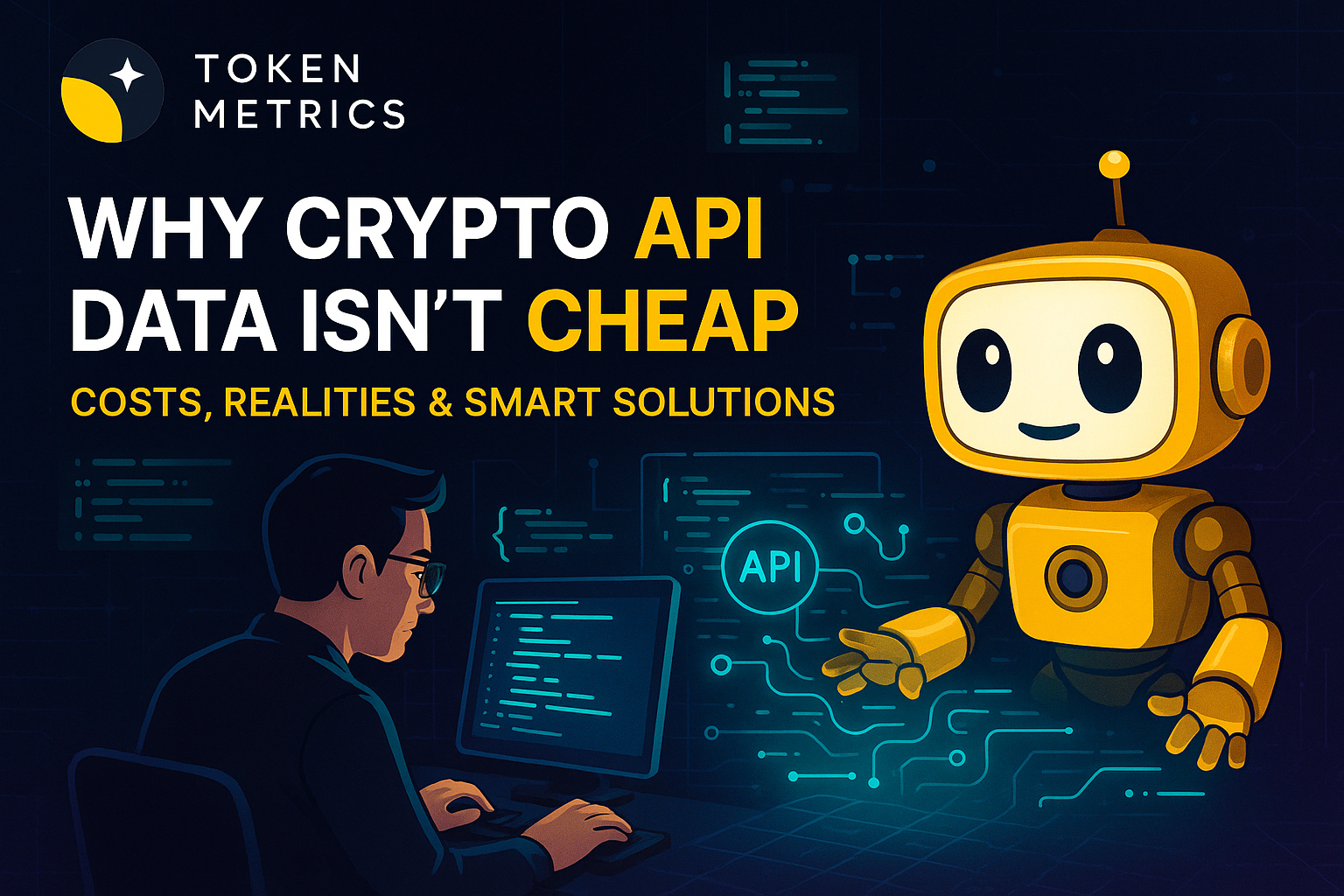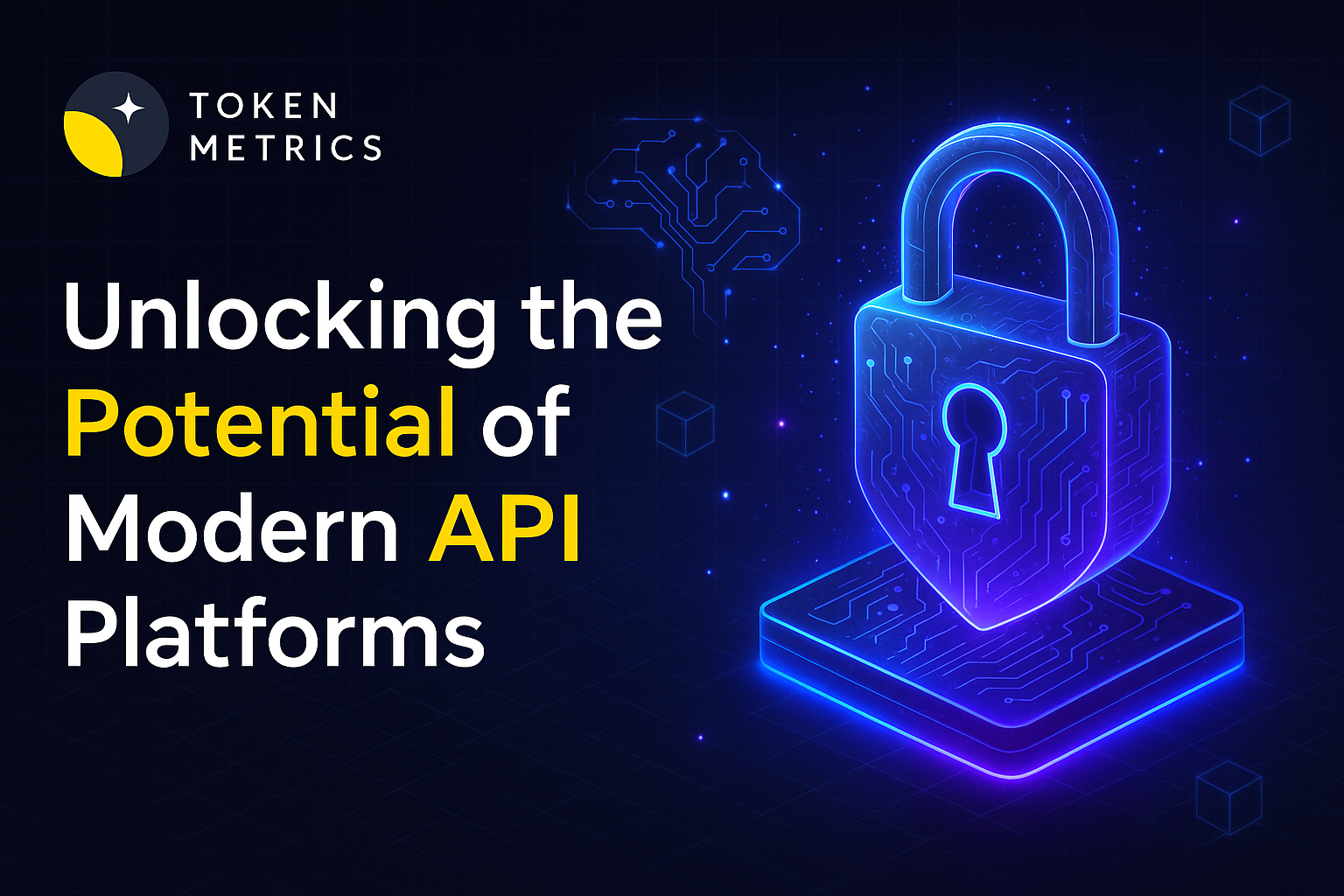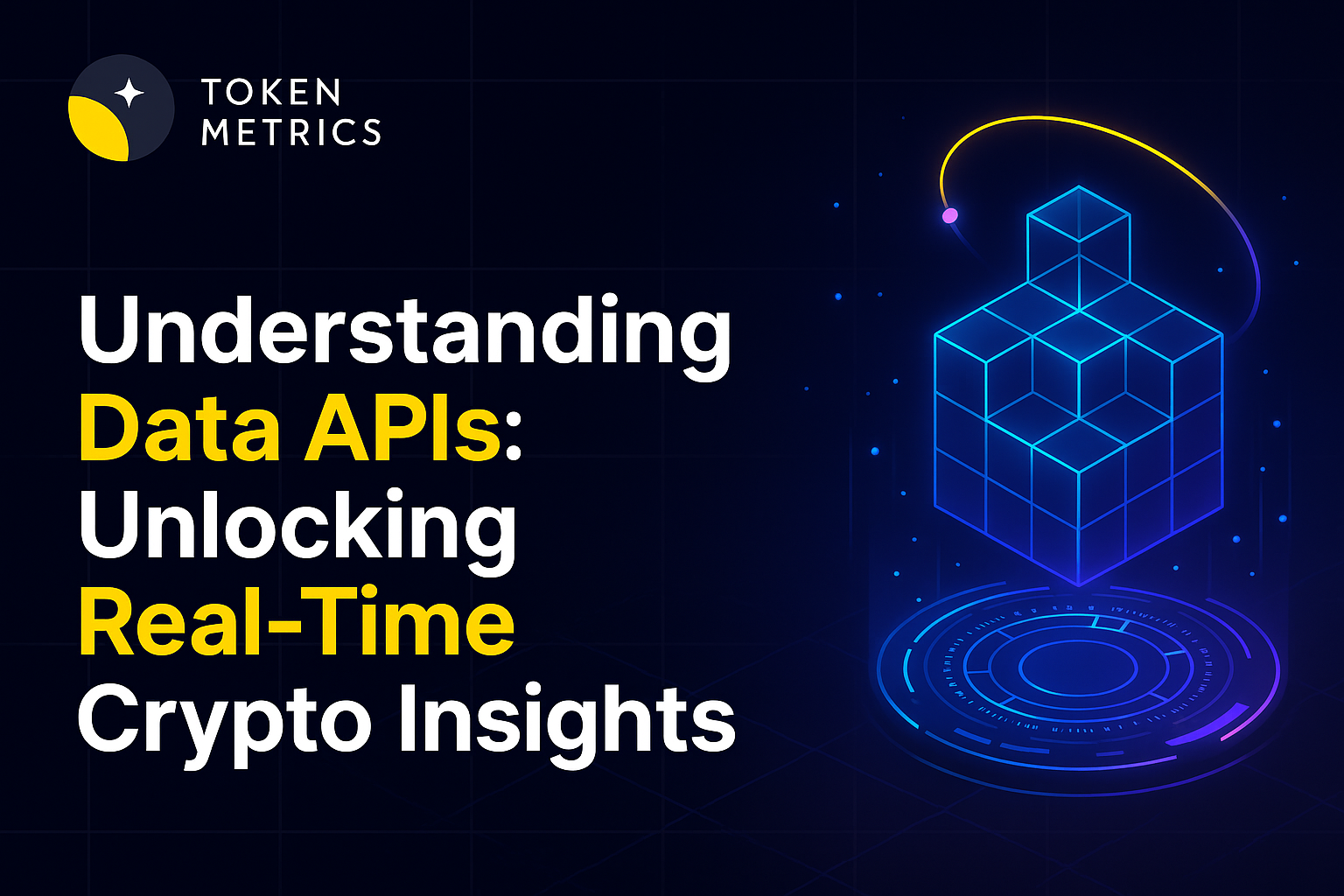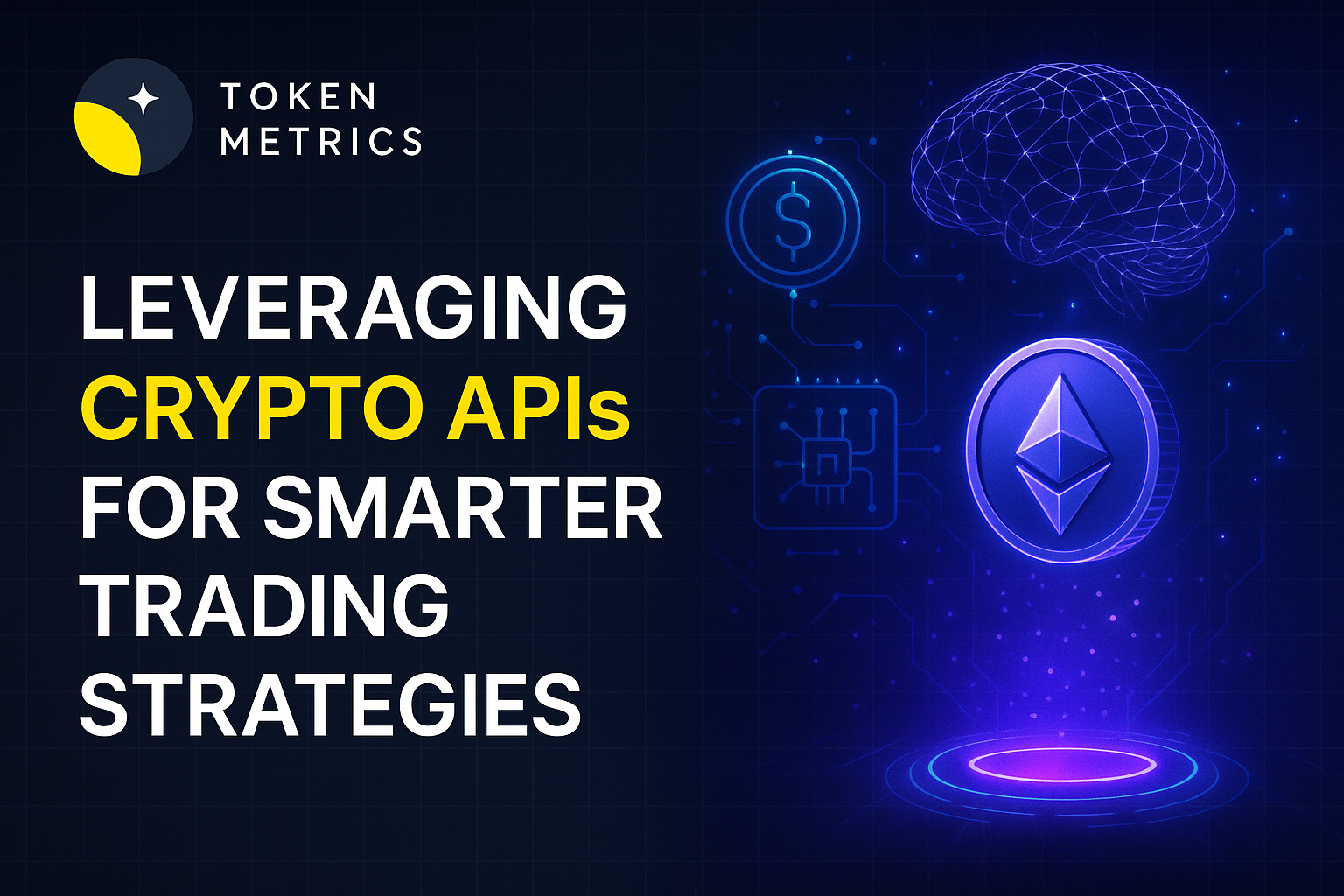
Why Crypto API Data Isn’t Cheap: Costs, Realities & Smart Solutions

As blockchain and crypto adoption surges, the demand for fast, reliable programmatic access to market and on-chain data has exploded. Developers, analysts, and startups rely extensively on crypto APIs to power apps, dashboards, and even AI-driven agents. Yet, many quickly realize: rich crypto API access can be surprisingly expensive. Why is this the case? What are the actual drivers of cost, and how can organizations optimize their API usage without sacrificing performance?
What Makes Crypto API Calls Costly?
Unlike traditional financial APIs, crypto APIs must handle large, decentralized datasets in real-time. The process of collecting, validating, enriching, and delivering this data to users is resource-heavy. Here’s why:
- On-Chain Data Volume: Blockchains, especially giants like Ethereum, generate massive volumes of transactional data every second. Extracting relevant information—blocks, transactions, token transfers—requires continuous syncing, substantial compute power, and scalable storage.
- Real-Time Demands: Market participants expect split-second access to price feeds and trading signals. This level of freshness necessitates robust server infrastructure and redundancy, both of which drive up operational costs for API providers.
- API Rate Limits: To control demand and maintain stability, providers often limit free or basic tier calls. Higher usage tiers or premium data (such as historical, on-chain analytics, or low-latency endpoints) incur greater costs.
- Security & Uptime: DDoS protection, API key management, and high-availability architectures are not trivial to develop or maintain. Reliable APIs also need to manage constant upgrades as networks evolve.
How Do Crypto API Pricing Models Work?
Crypto API providers use a range of models to manage infrastructure costs while scaling access:
- Freemium: Limited requests per month for free, with charges for higher usage, more endpoints, or additional features.
- Tiered Subscriptions: Packages based on maximum monthly API calls, unique endpoints, or support level.
- Pay-As-You-Go: Billing only for what’s consumed. This is common for high-frequency or enterprise clients needing flexibility.
- Enterprise Licensing: Flat annual fees for unlimited or very high-volume access, often paired with service-level agreements and dedicated support channels.
Ultimately, high-usage scenarios—like building real-time dashboards, AI analytics bots, or data aggregation platforms—will encounter notable costs, especially if they require both historical and live-chain data.
Balancing Performance with Cost-Efficiency
For many teams, efficiency isn't just about reducing API spend—it's about avoiding bottlenecks that can slow user experience or data integrity. Key trade-offs to consider:
- Data Granularity: Do you need tick-by-tick price updates or is hourly resolution sufficient? Finer granularity means more calls and more costs.
- Batch Requests: Some APIs support aggregating multiple queries into a single call, reducing overhead.
- WebSockets vs. REST: Persistent connections (WebSockets) can deliver streaming updates more efficiently than repeated polling via REST calls.
- Selective Endpoint Use: Only request what’s needed for your specific feature or user story, trimming unnecessary API consumption.
- Caching & Throttling: Intelligent local caching and request throttling can dramatically cut your API bill and preserve provider bandwidth.
Practical Tips for Developers: Optimizing Crypto API Usage
To build scalable, cost-effective apps, dev teams can adopt several best practices:
- Audit API usage patterns regularly. Identify redundant or duplicate calls.
- Set clear API rate limits in code—as a safeguard against accidental overages.
- Use built-in API analytics to monitor consumption and plan for capacity based on peak vs. average demand.
- Explore multi-provider strategies. Balancing calls among a mix of APIs can de-risk single-provider outages and, in some cases, optimize pricing.
- Establish automated alerts for quota limits or unusual spikes in usage to avoid service disruptions.
- Consider using AI to predict traffic or data needs, pre-fetching only essential info when likely to be needed.
Many modern crypto analytics platforms, such as Token Metrics, also offer intelligent API solutions and reporting to support these optimization efforts.
The Future of Crypto APIs: Innovation and Cost Evolution
The evolving crypto ecosystem is pushing both infrastructure and cost models. Emerging trends include:
- AI-Powered Data Extraction: Companies are leveraging AI to parse, clean, and classify blockchain data more efficiently, reducing operational overhead.
- Decentralized Data Networks: Platforms aggregating data from decentralized sources (oracles, peer nodes) may offer lower-cost and more resilient alternatives.
- Dynamic Pricing: Expect APIs to increasingly adopt demand-driven pricing, scaling costs with market volatility or network congestion.
- Better Developer Tooling: As the sector matures, expect even more robust SDKs, flexibility in integration, and user-friendly analytics for tracking both usage and billing.
While API costs will likely remain a factor in crypto development budgets, ongoing innovation is opening new opportunities to discover value and build smarter.
Build Smarter Crypto Apps & AI Agents with Token Metrics
Token Metrics provides real-time prices, trading signals, and on-chain insights all from one powerful API. Grab a Free API Key
Why are crypto API calls so expensive compared to other APIs?
Crypto APIs often handle vast, rapidly updating blockchain datasets. The requirements for real-time data parsing, high uptime, and managing decentralized sources drive infrastructure and operational costs significantly above traditional APIs.
How can developers reduce their crypto API costs?
Optimizing call frequency, implementing data caching, batching requests, and leveraging efficient endpoints can substantially cut usage and associated expenses. Monitoring consumption and exploring competitive providers also helps control costs.
Are there any free or affordable crypto APIs available?
Many providers, including Token Metrics, offer limited free tiers with restrictions on call volume or accessible endpoints. These plans are suitable for prototyping and testing, but scaling up typically requires moving to paid or subscription models.
What risks exist if you exceed API call limits?
Users may face temporary suspension, degraded performance, unexpected charges, or total loss of access. It's best practice to monitor usage and set up automated safeguards to avoid exceeding quotas.
How does Token Metrics' API stand out for crypto developers?
Token Metrics API combines real-time pricing, trading signals, and sophisticated on-chain analytics through a single, streamlined interface. Developers can integrate actionable insights with minimal overhead and flexible pricing options.
Disclaimer
This blog post is for informational and educational purposes only. It does not constitute investment advice, trading recommendations, or an offer to buy or sell any crypto asset. Always conduct your own research and consult a qualified professional before making data integration or financial decisions.

.svg)

Create Your Free Token Metrics Account

.png)




%201.svg)
%201.svg)


%201.svg)









.svg)




.png)